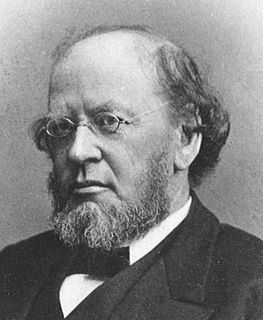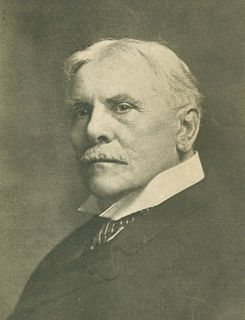A Quote by Lord Acton
The principle of the Inquisition was murderous. . . . The popes were not only murderers in the great style, but they also made murder a legal basis of the Christian Church and a condition of salvation.
Related Quotes
There is no religion in the world where there is a possibility of spiritual development outside of the context of that religion. This is only a modern invention. For example, Christian mystics were also Christians. They also went to Church and followed Christian laws. Hindu mystics were practicing Hindus; they didn't kill cows and have steak. They follow the Hindu laws and so on and so forth down the line and Sufism is no exception.
Christianity is not just involved with "salvation", but with the total man in the total world. The Christian message begins with the existence of God forever, and then with creation. It does not begin with salvation. We must be thankful for salvation, but the Christian message is more than that. Man has a value because he is made in the image of God.
But the consequences of the whole-hearted and uncritical embrace of politics by Christians has been, IN EFFECT, to reduce Christian faith to a political ideology and various Christian denominations and para-church organizations as special interest groups. The political engagement of the various Christian groups is certainly legal, but in ways that are undoubtedly unintended, it has also been counterproductive of the ends to which they aspire.
I saw also the relationship between the two popes I saw how baleful (evil; harmful) would be the consequences of this false church. I saw it increase in size; heretics of every kind came into the city (of Rome) Once more I saw the Church of Peter was undermined by a plan evolved by the secret sect (Masonry), while storms were damaging it.
I grew up in a Christian home, but was nearly 17 before I realized I had to make my own decision to place my trust in Christ. Salvation cannot be earned by doing good works or going to church, and can't be automatically passed on from Christian parents. Salvation is a free gift from God, who sent His Son Jesus Christ to die in our place.
In the agreement to rescue Rome [i.e., the Roman Catholic Church's hierarchy] from the predicament of losing its world control to Protestantism, and to preserve the spiritual and temporal supremacy which the popes [had] 'usurped' during the Middle Ages, Rome now 'sold' the [Roman Catholic] Church to the Society of Jesus [i.e., the Jesuits]; in essence the popes surrendered themselves into their hands.
There is no ground whatever for the claim, so often made by religious apologists, that these ideals are specifically Christian and originated with Jesus. What were specifically Christian were some of the less enlightened teachings, which have done untold harm. Christians claim that organised Christianity has been a great force for good, but this view can be maintained on one assumption only: that everything good in the Christian era is a result of Christianity and everything bad happened in spite of it.

































